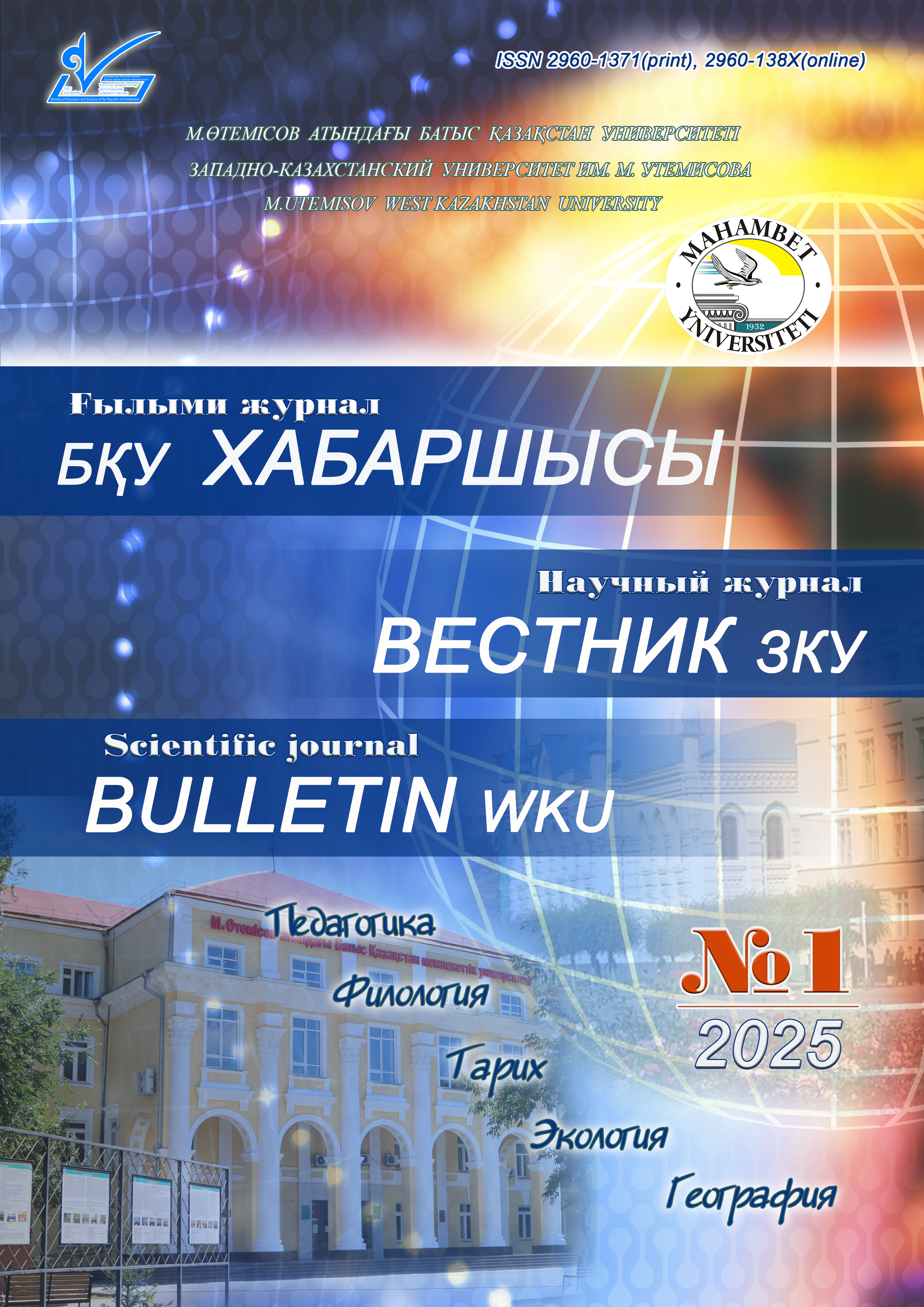ДӘСТҮРЛІ МӘДЕНИЕТ ТҰЖЫРЫМДАРЫНА ҚАТЫСТЫ КӨЗҚАРАС
Abstract
Abstract. In recent years, scholarly interest in traditional culture has grown significantly. This trend can be attributed to the increasing importance of tradition as a bridge to historical memory in the face of globalization and digital transformation, serving as a key means of safeguarding national and cultural identity. However, the very concept of «culture» is given in the specialized literature with different interpretations. Thus, the «folklore» in which modern research is presented is achieved in various terms: «traditional», «archaic», «pre-industrial», «agrarian», «peasant», «written", «household», «everyday», «non-specialized» (culture). The rapid growth of technology, modern changes in society, and innovations inevitably lead to a change in the nature of "traditional culture." Innovations, modernization and transformation processes are reflected in all aspects of traditional cultural models. The formation of various concepts regarding the preservation and adaptation of traditional culture to modernity indicates that the concept of "traditional culture" is always relevant in the scientific community.
The article is dedicated to analyzing the significance and main directions of studying traditional culture in modern historiography. It examines the place of traditional culture in contemporary research, its socio-cultural, historical, and spiritual aspects. Additionally, it addresses the methodological approaches to studying traditional culture, the types of sources, and methods of their analysis.
The main goal of the article is to demonstrate the relevance of studying the traditional culture of the Kazakhs in modern research and to prove that it is an important part of scientific knowledge. Furthermore, the article emphasizes the role and significance of traditional culture in modern society, its place in preserving national identity, and reviving the spiritual heritage of the Kazakh people.



